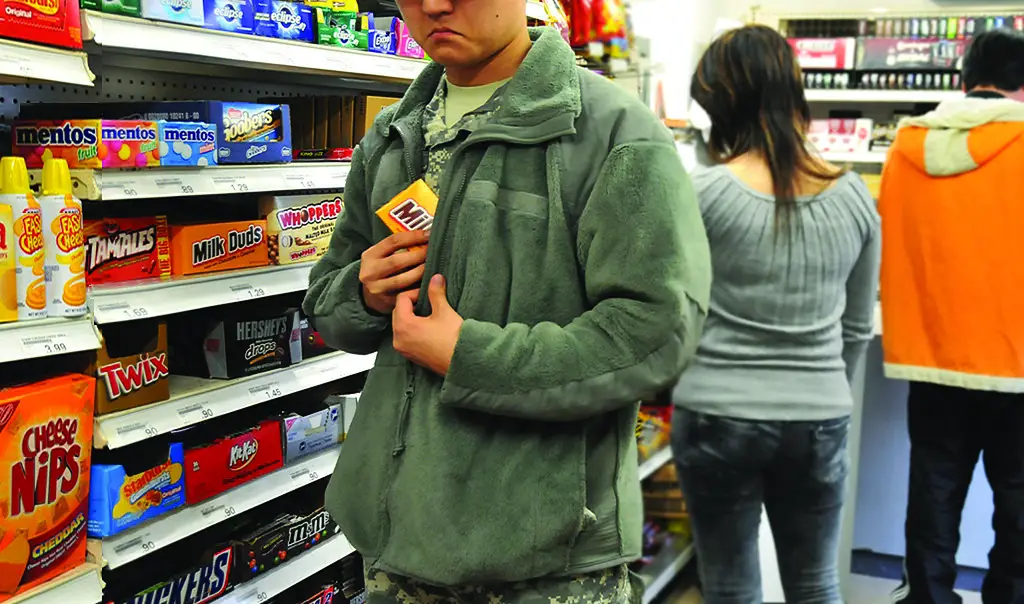Related Posts
This viral video is a perfect example of “shopkeeper’s privilege” gone wrong.
The video shows POV footage of a woman approached by a security guard in a Walgreens store. The security guard accuses her of stealing. He tells her that security footage caught her in the act.
The woman responds, saying she wants to see the footage. The guard seems reluctant to review the footage. It’s unclear what happens next, but he may likely detain her or ask her to empty his pockets.
Shopkeeper’s privilege states that a shopkeeper may detain a customer if they have reason to believe that person was shoplifting. However, they can only detain them for a reasonable time to investigate the possible crime. So, was the security guard abusing that privilege?
What is Shopkeeper’s Privilege?
Shopkeeper’s privilege outlines a shopkeeper’s rights regarding how they can treat a customer they believe was shoplifting in the store. It states that the shopkeeper may:
- Detain the customer for a reasonable amount of time as needed to investigate the possible crime
- Search the customer’s belongings in plain view
- Uses reasonable force to prevent the customer from leaving
- Call the police if stolen items are found
It may seem that initially, the security guard was acting within the shopkeeper’s rights. However, he made one critical mistake. He did not comply with the woman when she asked to review the security footage.
The woman requested that they review the footage, which would have given the shop reasonable time to investigate the incident. The guard’s refusal to do so could be seen as a shopkeeper’s privilege violation.
Furthermore, it was revealed that the guard was fired for this breach.
Shopkeeper’s Privilege FAQs
Can a Merchant Forcefully Detain a Customer?
Yes, a merchant may use a reasonable amount of nondeadly force to protect themselves and prevent the potential shoplifter from escaping.
What Can a Shopkeeper Do in Detention?
Once a customer is detained, the shopkeeper can search them for the items they believe stolen. They can only search the customer’s packages, shopping bags, handbags, and any other belongings in the customer’s immediate possession. They cannot search within their clothing.
If the merchant finds stolen goods on the customer, they can call the police. Law officers can issue a citation or arrest the alleged shoplifter.
Is Shopkeeper’s Privilege a False Imprisonment Defense?
A shopkeeper who properly detains a customer cannot be accused of false imprisonment. False imprisonment is “the unlawful violation of the personal liberty of another.” Shopkeepers who use shopkeeper’s privilege are not violating any laws, so they would not be accused of false imprisonment.
What is the Difference Between Shopkeeper’s Privilege and a Citizen’s Arrest?

A Citizen’s arrest occurs when a citizen with no official arrest authority detains a person they believe is guilty of committing a crime. The crime could be a misdemeanor or felony the person witnessed. A citizen’s arrest can quickly go wrong if the detention is improper.
Shopkeeper’s privilege is not the same as a citizen’s arrest in the eyes of the law. A shopkeeper can detain a person when there is a reasonable belief a theft has occurred. The shopkeeper does not have to actually witness the theft so long as the belief is reasonable and promptly investigated. Additionally, they may only detain someone committing a crime that affects their business.
If they detain a person for a crime conducted outside their shop that didn’t directly affect their business, that would be considered a citizen’s arrest.
What is Shoplifting?
Shoplifting refers to willfully concealing or intending to take items without paying. People may also be guilty of shoplifting if they alter price tags, manipulate merchandise, or switch an item’s packaging to avoid paying full price.
Shoplifting laws vary from state to state. However, shoplifting is mostly limited to items priced below $1000 and is considered a misdemeanor.
If a person enters a shop and tries to steal expensive goods totaling over $1000, they may be charged with grand theft. Grand theft is a felony.
Shoplifters may also face higher charges if they try to shoplift guns, drugs, and other weapons.

